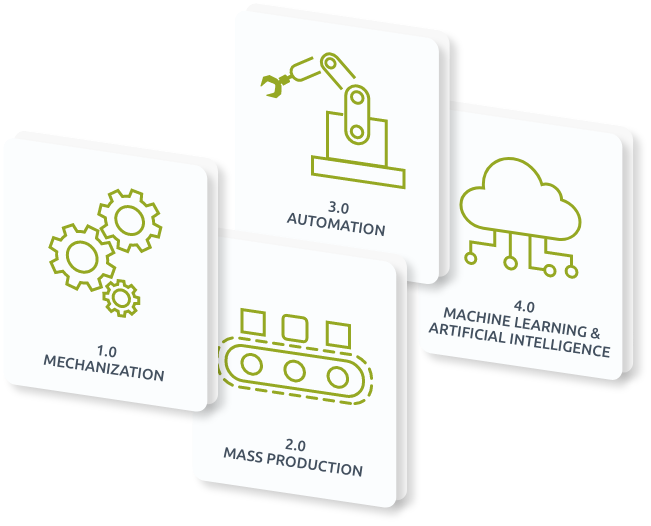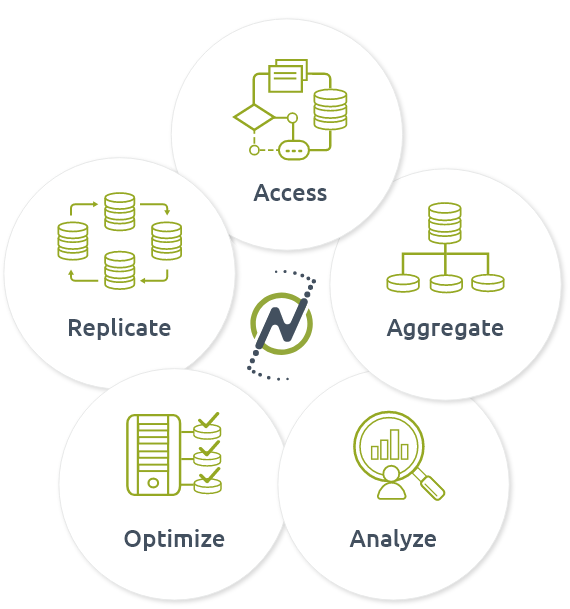
Technology
What Is Industry 4.0?
At the heart of the Industry 4.0 revolution is the ability to gather data from various sources across divergent platforms, and analyze and evaluate the data in order to make information-based decisions that will help businesses become more efficient, produce higher-quality products, and improve overall ROI. But what truly makes Industry 4.0 distinct is the development of intelligent, autonomous systems that are fueled by big data and machine learning.


A Comprehensive Approach to Optimization
Access: Gather digitized data from disparate sources
Aggregate: Normalize data to common data sets
Analyze: Extensively examine deep data analytics, beyond just KPIs
Optimize: Leverage insights to change parameters that can impact performance and revenue
Replicate: Our data scientists can utilize the algorithms and insights to help replicate and scale beyond just a single-use
The Data Challenge
So why has it seemingly taken so long to adopt Industry 4.0? What appears easy in theory is extremely complex in reality. Not only do you have vast amounts of data, but the information is coming from diverse sources, each with their own unique parameters and often measured in different units. Too add to the complexity, the data may be geographic-specific, and it becomes virtually impossible to equate, normalize and analyze in its raw output form. It becomes extremely difficult to compare disparate and diverse data from multiple systems across different sites. We have found that as much as 99% of factory data is discarded before any insight can be derived.
“Gathering and normalizing the huge amounts of diverse data is really just the start, and honestly, this is relatively easy for us to do.”
-John Crawford, CTO of Ndustrial
Deep Analytics Beyond the KPI
While some companies can successfully aggregate and equate the data, they fail to leverage the true meaning of the data and make an impact on the output of the operation. Gathering data to determine a KPI is only the first step. But a KPI alone is not going to convey HOW to make changes to improve operations. What’s important – and extremely difficult to achieve – is leveraging the insights learned to actually optimize operations and impact the bottom line.
“It’s really so much more than delivering KPI data or measuring performance. We don’t just help a company track and report their yield, we give them tools to determine how to get an even better yield with lower raw material costs. We help change the parameters and thinking based on insights we’ve learned. That’s the kind of impact our solution has on business.”
-Jason Massey, CEO of Ndustrial
Predictive Modeling
The key to optimizing efficiencies and truly impacting operations is the ability to create autonomous algorithms to enable sustainable and scalable models. These can be used to test different scenarios, allowing continuous operational optimization. While AI, machine learning and digital twin technologies have come a long way in industrial optimization, they still require human intervention, and new data training is required with even the slightest change in operations, raw material, other factory-related process. These are great one-off technologies, but they lack the true scalability and are not replicable across factories or even across lines within a factory.
“While AI and digital twin technology continually evolve and improve performance for specific use cases, they currently cannot adapt quick enough to become truly scalable without a rebuild or an intense period of training data for each new scenario.”
-Natalie Birdwell, COO of Ndustrial
